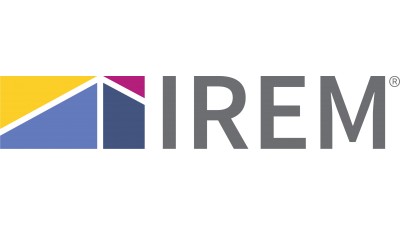How An 88-Year-Old Organization Is Fighting Back Against Today’s Affordable Housing Crisis

The affordable housing crisis in America is staggering. There is no state or county in the U.S. where a renter working full time for the minimum wage can afford a two-bedroom apartment, and 70% of all extremely low-income families spend more than half their income on rent.
“When it comes to affordable housing, there is overwhelming demand and not nearly enough supply,” said Shannon Longino, vice president at Truist Financial Corp. “Covid has just exacerbated the problem — housing plays a viable role in all of our communities, and when families’ needs are not being met, it makes it very difficult to try and sustain economic stability.”
Along with being a vice president at Truist, Longino is a longstanding member of the Institute of Real Estate Management, or IREM, which offers education courses, certifications and networking for property managers. IREM has been working for decades to encourage the creation and maintenance of affordable housing in the U.S.
Longino and Dwayne Alexander, president and CEO at the Jacksonville, Florida, Housing Authority and fellow IREM member, recently spoke with Bisnow about the growing affordable housing crisis and what IREM is doing to help.
Alexander said that years ago, houses were cheap, but interest rates were high because that’s where the money was being made, not off the property itself. Now, money is being made off properties, while interest rates stay low and it’s the money, not the houses, that is cheap.
“You have this situation where gentrification is rampant and houses are going up everywhere,” Alexander said. “This has drastically impacted the low-income housing market. Years ago, when the average rent was $750, a Section 8 voucher was considered a golden ticket. Today, a three-bedroom unit costs $1,500 and it’s no longer covered under a Section 8 voucher.”
He added that in many places, the definition of “affordable housing” seems to have changed, and many people tend to lump it in with low-income or workforce housing. This means, Alexander said, that an “affordable” apartment could rent from anywhere between 40% and 140% of the area median income.
“Homes are selling for 20% to 40% more than their market value because the demand is so high, and renters are experiencing the same kind of price bloat,” Longino said. “This drives out low-income families. If you’re basing what defines an ‘affordable’ home on the area median income, and suddenly your local AMI is $100K, you’re going to be left with a lot of individuals who can’t afford a home.”
IREM’s Federal Housing Advisory Board works with congressional leaders and staffers and speaks out to preserve affordable housing, not only for residents but for landlords and owners as well. Many IREM members, Longino said, operate affordable housing communities, so this is an important issue for the organization across the board.
“We’re making sure that when congressional leaders are passing legislative measures they are continuing to keep these properties attainable for the people who need them the most,” she said.
Alexander said that IREM is the “catalyst” when it comes to real estate — the organization has been around since the 1930s certifying property managers, and while there are many advocacy groups, CPM is the only designation that is technically recognized by the National Association of Realtors.
“Today’s manager has to be nimble, aggressive and very knowledgeable of the market for all of real estate to thrive — including affordable housing,” he said. “IREM prepares people with the knowledge they need to further that success.”
He said that the Jacksonville Housing Authority, which is one of more than 3,300 housing authorities nationwide, is one of just four that is designated an Accredited Management Organization by IREM. This, Alexander said, certifies to the real estate industry that the Jacksonville authority has the skills, knowledge and abilities of a real estate firm that manages properties.
Longino added that IREM’s training programs can train real estate professionals to run properties in a way that benefits both investors and the community.
“IREM teaches any real estate professional who is interested in obtaining their CPM to be the CEO of any endeavor they're managing,” Longino said. “From training in finances and leasing to human resources, IREM’s curriculum shows people how every check and balance must operate to ensure that their asset is performing in an equitable and sustainable way that works for the community and provides investors with returns.”
This article was produced in collaboration between Studio B and IREM. Bisnow news staff was not involved in the production of this content.
Studio B is Bisnow’s in-house content and design studio. To learn more about how Studio B can help your team, reach out to studio@bisnow.com.

